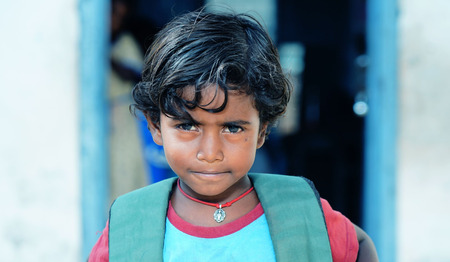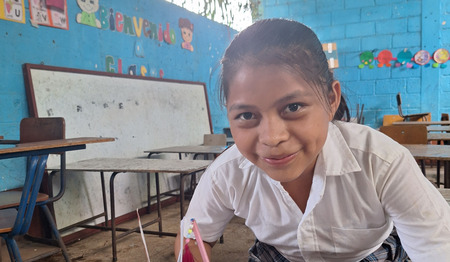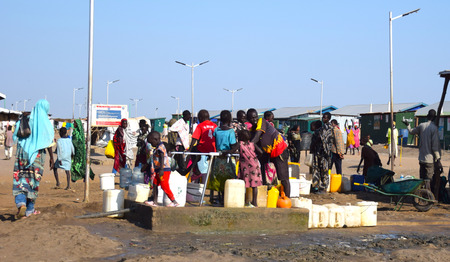Learn more about Shared Futures in Kenya
In the coastal areas of Kenya religious and ethnic violence occur regularly. It requires a comprehensive ‘soft power’ approach to prevent violent extremism. Dialogues, sports, economic empowerment and cultural events are effective means to build social cohesion in Kenyan communities.
Preventing and countering violent extremism
In Kenya, the majority of people are Christian, yet in the coastal areas the dominant religion is Islam. For a long time, followers of the different religions have lived peacefully together. However, with increased cases of violent extremism linked to ISIS, Al-Qaeda and Al-Shabaab, tensions between the various groups have grown. Especially young people are lured into joining extremist groups. The Kenyan government invests heavily in the prevention and countering of violent extremism, but additional efforts from civil society actors are necessary to build resilient individuals and communities.
Challenges and risks for youth in coastal Kenya
 Oftentimes, acts of violence are done in the name of religion. Yet the root causes of radicalisation and violent extremism are not found in religion. They are related to political, economic and social injustices. In an environment where poverty is widespread and youth unemployment is rampant, young people face a lot of challenges. These include not only school drop-out, gender-based violence and teenage pregnancies, but also drug abuse and criminal activities. With little perspective of a better future, youth are lured into extremist groups with the promise of money for their families.
Oftentimes, acts of violence are done in the name of religion. Yet the root causes of radicalisation and violent extremism are not found in religion. They are related to political, economic and social injustices. In an environment where poverty is widespread and youth unemployment is rampant, young people face a lot of challenges. These include not only school drop-out, gender-based violence and teenage pregnancies, but also drug abuse and criminal activities. With little perspective of a better future, youth are lured into extremist groups with the promise of money for their families.
Shared Futures in Kenya
The Shared Futures programme has been implemented since 2019 by a coalition of five Kenyan organisations. It aims to economically uplift 1,000 youth of different faith backgrounds per year, enhance social cohesion and prevent religious extremism. The programme works along three pathways: a) communities, b) duty bearers and c) advocacy to share the learnings. Each pathway has a specific set of activities which contributes towards attaining a just and resilient society, upholding freedom of belief and fostering interfaith cohesion through socio-economic cooperation.
Improved livelihoods, trauma healing and life skills
The Shared Futures partners in Kenya reach out to individuals and youth groups with a variety of interventions. A large part of them is focused on providing economic opportunities, so that they can create an alternative livelihood for joining an extremist group. The youth are offered training about the labor market, entrepreneurship, business development and linkages with financial institutions. Trainees receive apprenticeship opportunities, mentorship and the possibility to join a loan and savings group. They can participate in agri-business training to learn how to breed chickens, to do beekeeping and to grow vegetables. Besides these interventions related to improving their livelihoods, the youth are provided with sessions on trauma healing, identity, sexual reproductive health and parenting skills. These so-called ‘life skills’ are essential in changing mentality and behaviour: the youth become more resilient to drug abuse, juvenile gangs, teenage pregnancies and violent extremism.
Interfaith relations are growing
 In Kenya, an important element of the Shared Futures approach is the organisation of interreligious sports events. The events provide an opportunity to reach out to not only the youth, but also their younger siblings and their parents. The breaks during the tournaments are used for sharing messages on celebrating diversity, inclusion and tolerance. Another way of reaching the wider community is through theater and arts, as well as parents’ dialogues and ‘kumbatia’ forums (kumbatia meaning ‘embrace’ in Swahili). In all these different activities, Muslims and Christians are brought together to learn from each other and to overcome prejudices. This ultimately leads to interreligious understanding, collaboration and a more peaceful society.
In Kenya, an important element of the Shared Futures approach is the organisation of interreligious sports events. The events provide an opportunity to reach out to not only the youth, but also their younger siblings and their parents. The breaks during the tournaments are used for sharing messages on celebrating diversity, inclusion and tolerance. Another way of reaching the wider community is through theater and arts, as well as parents’ dialogues and ‘kumbatia’ forums (kumbatia meaning ‘embrace’ in Swahili). In all these different activities, Muslims and Christians are brought together to learn from each other and to overcome prejudices. This ultimately leads to interreligious understanding, collaboration and a more peaceful society.

Support of public dutybearers
Participation and support from local leaders and authorities is essential in reaching the goals of Shared Futures. The involvement of religious, traditional and government leaders improves the security in communities and offers new opportunities for the youth. For example, some youth have formalised their youth group to be able to apply for grant opportunities. Also, in one case a community elder offered a piece of land to a youth group for farming activities. The group activities and visible improvement of their living circumstances foster a sense of community pride and cooperation.
Lobby and advocacy efforts
The Shared Futures partners in Kenya are actively involved in lobby and advocacy. They contribute to the development and implementation of government policies and share their experiences through podcasts and radio broadcasts. Successful participants serve as role models and share their experiences within the communities. One of the partners was highlighted by the United Nations as a good example of how sports can be used as an effective means to combat extremism, to promote safety and to uplift marginalised communities.

Changes systematically measured
In the Shared Futures programme, the Most Significant Change methodology is used to systematically measure personal, relational and socio-economic change, which are mostly connected. In Kenya, the partner organisations also use Participatory Video to capture stories of change. Participants and leaders share stories of improved livelihoods, improved mental health, and increased collaboration among different social and religious groups. Sharing the stories among stakeholders encourages continuation of the programme and calls for an expansion to other areas, because it is adding to the safety, security and peaceful co-existence in Kenyan society.
The Shared Futures programme is developed by Kerk in Actie and active in Pakistan, Kenya, Egypt, Cameroon, Ghana and the Netherlands and will start in 2026 in Bangladesh.





